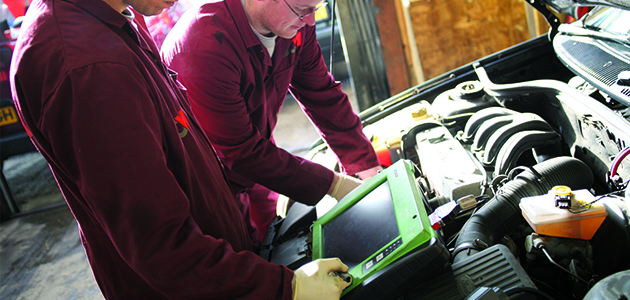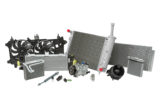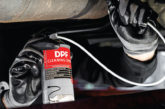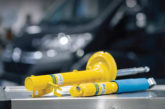
Accurate and efficient diagnosis of vehicle complaints requires a sound understanding of basic diagnostic techniques and a good handle on the capabilities of your own scan tool.
A technician within a well appointed independent garage is expected to diagnose motor vehicle related problems using a wide range of differing and appropriate methods. Usually, one of the first diagnostic aids that will be chosen is the diagnostic tester or scan tool, often referred to as a ‘Trouble Code Reader’.
What happens though, when a ‘Trouble Code Reader’ fails to display a Diagnostic Trouble Code (DTC)? What if it displays “Signal too high”, Signal too low” or even “Signal Implausible”? Additionally, where does a technician go when the ‘Trouble Code Reader’ fails to tell them which component has failed?
The IGA training solution – back to basics
Late last year the Independent Garage Association (IGA) announced that it would be offering free diagnostic training to its members. Building on the incredible popularity of its hybrid training offering, this latest initiative is designed to help technicians with gaining a greater understanding of fundamental diagnostic processes as well as assisting them in realising the capabilities of their existing diagnostic scan tool(s).
At its core, the training process starts by taking a step back. In this computer age it’s all too easy to forget the basics associated with vehicle diagnosis, with many technicians instead travelling through a process of component replacement diagnosis based on the diagnostic tester’s interpretation of the fault.
Remembering the basics is one of the most important tools in the technician’s armoury during diagnostic work; often we just need to re-remember what those basics are and how to implement them in our thought process during diagnostic repairs.
Plan of attack
Presuming that the basics have indeed been remembered and implemented, what then is the next logical stage that follows this?
The IGA’s diagnostic training aims to reinforce the point that having a well organised plan of attack with a logical thought process, and using as much technical information as possible, is often more important in the diagnostic process than the time spent physically working on the vehicle itself.
The training challenge
Trying to strike a balance between meaningful and focused training at a member’s premises within a limited acceptable timeframe poses its own challenge. Technical expertise, experience and desire for continual development can be very different across the independent sector. The training tasks carried out during a three hour session, for instance, needs to be focused, meaningful and flexible enough to ensure that the technician will benefit in the long term.
Whether the training is used to explore – through guidance and coaching – some of the more intricate aspects of the garage’s own diagnostic machine, or whether it is used to help develop further understanding of the technologies employed in modern motor vehicle systems, it is our belief that by implementing a flexible approach, a little training can go a long way in streamlining the diagnostic and repair process, whilst at the same time helping to reduce the misspend on components replaced during diagnosis.
Popular demand
If the reaction to the aforementioned hybrid training programme is anything to go by then it is expected that the IGA’s newest technical training offering will be in high demand.
This initiative is delivered as an additional benefit for existing members and there is no separate charge for the course – something that clearly reinforces the organisation’s commitment to the independent sector and its members. As a result of the expected surge in training requests, it should be stated that some members may have to wait before receiving the course.
On the upside, RMI Standards and Certification (RMISC) has now been granted status as an IMI Awarding centre, meaning courses will carry IMI Certification (available for a small fee) for those technicians taking part.









